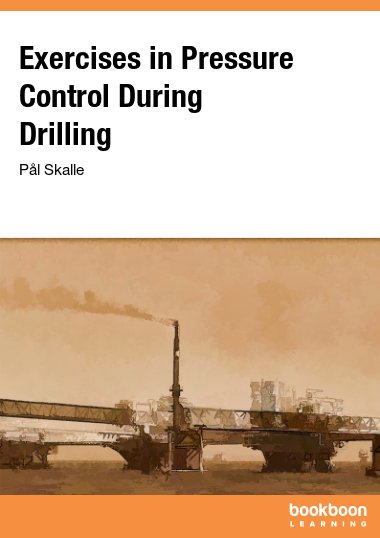This is the exercise book accompanying Pressure Control During Drilling
Porous sedimentary formations penetrated by the rock bit contain fluids such as oil, gas or salt water. If the hydrostatic pressure of the drilling fluid drops below the formation pore pressure, pore fluid will enter the well and “kick” the mud out of the well. To control the pressure while drilling you need to understand the behavior of gas. This book aims at explaining the physics and the engineering approaches behind pressures in the sediments, detection of unstable wellbores, equipments necessary to close and kill the well, killing methods and offshore challenges.

